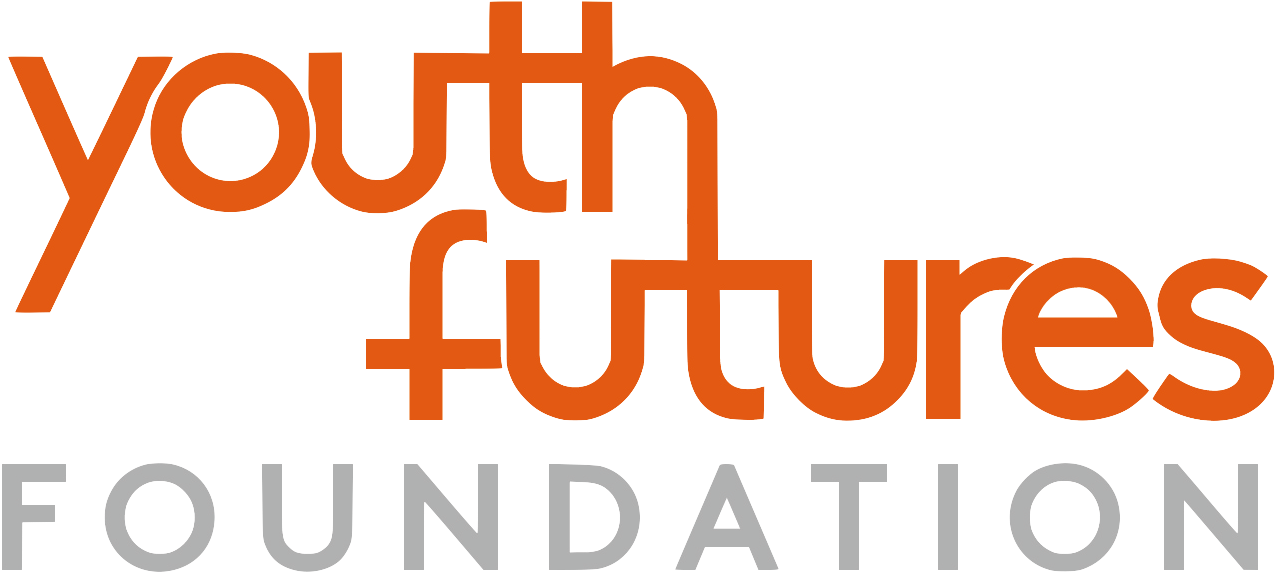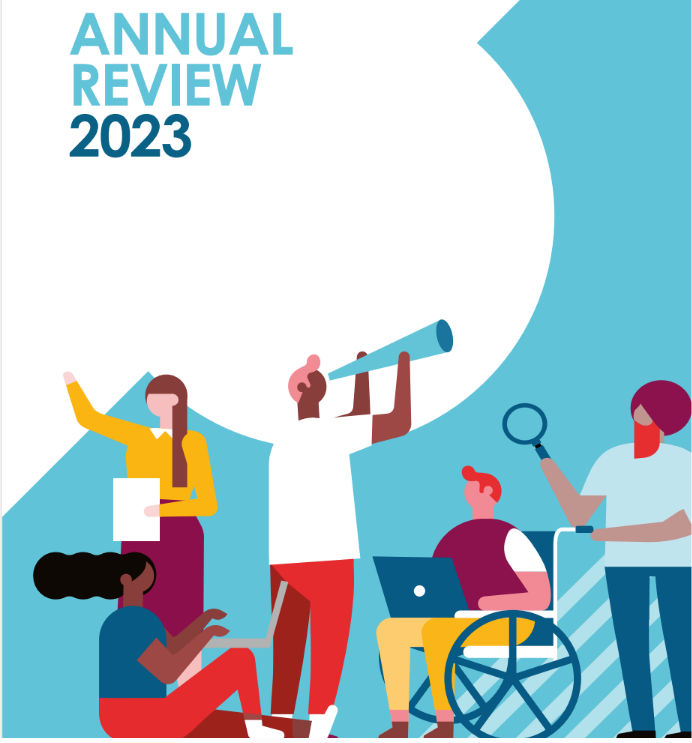We caught-up with Anthony Harmer, Chief Executive of ELATT to learn more about how their work is supporting disadvantaged young people in Hackney, London.
Hi Anthony! Thanks for joining us today. Can you tell us about ELATT?
We were founded in 1984, and we prioritise supporting disadvantaged young people and adults as they move into employment. We support them with digital skills, functional skills, English, math, employability, and we also offer 360-degree welfare and personal development support. Students have access to finance and welfare advisors, housing support; we really try to offer a one-stop-shop to our students. The priority is to help them develop as people get their qualifications, get work experience because statistically this group is very vulnerable to unemployment long-term as adults.
What are some of the most rewarding aspects of working with the young people who take part in your programmes?
When people get a great result, it really makes it feel worth it. You put a lot of hard work into getting there, but when you see people achieve qualifications that they didn’t think they would otherwise – it’s a great feeling. We have three people currently at Hackney Council doing supported employment internships, and that’s a great feeling because when a lot of our students arrive with us, some don’t often have high levels of aspiration because things haven’t worked out well before. Six young people went to university last year! When you see the people make those big steps – it’s incredible. Also on a day to day basis when someone gets a particular part of math, or they get on top of their spelling and they feel like they’ve made an achievement, it’s extremely motivating. And just hearing back from the staff as well about colleagues and teachers and TA’s about what’s made their day and what they’re proud of makes it all absolutely worth it.
What are some of the challenges of running a charity like ELATT?
I think the challenges are like any busy education environment. For example, meeting funding requirements and, being a charity, we’re always needing to secure funding for projects. Thinking about what grants are expiring, building networks and relationships to recover and replace them. Meeting student and parental needs, it’s not always the same. Working with the local authorities, key workers are involved so that’s a lot of stakeholders who each have an input and we’re trying to give them all the best service they’re looking for. And it can be a stressful environment for staff. It’s not always easy work; the young people we work with often do have challenging backgrounds, and that can come out in the classroom. So we have put great emphasis on supporting staff with their workload and their emotional support. A major challenge is finding work experience. We try to find longer-term work placement opportunities that give people a real understanding of what’s needed in the office. That’s been particularly challenging in the pandemic, of course, because businesses naturally enough have been closed. A lot of staff have been working at home, and that’s made it difficult for organisations to know what they can commit to even when an industry partner might have a lot of willingness and inclination to offer placements.
How will your Youth Futures Foundation grant support your work?
We’re providing individualised pastoral care: a package of personalised employability and personal development support, life skills development and additional learning support and the life skills development we call ‘life wise’ and financial literacy. Understanding the employment market and understanding opening a bank account, for example. It depends on the individual, but that’s very much linked to the independent living program, especially for young people with Special Educational Needs (SEN). But over and above that it’s very much about employability, careers advice, getting work experience, mentoring, coaching and then moving onto placement and apprenticeships and work. So that’s tracked by the evaluators on parts, a partner on the project who’s following a certain number of learners so we can see how what’s working in our model and what could be improved and what can be replicated and shared elsewhere.
What does your Connected Youth programme involve?
It involves digital skills, English and math, employability and mentoring, and it’s for 16 to 24 year-olds. One of the aspects of our program is to roll out the support that the group on educational health care plans are getting across the board. So that was one of the overriding reasons that we applied for funding and why we’re so happy to be delivering it. All the challenges that young people generally face are also true in our courses. ‘What do I do next? What’s the right career for me? Who am I getting on in class with today?’ And I think there’s an extra element of ‘how do I build experience so that I’m competitive in the job market?’ That’s something we really try to focus on, making the learning practical, hands on because confidence levels really benefit from creating and doing and seeing that you’ve achieved something tangible. We do a lot of field trips and trips to other centres as a result. Where people have special educational needs that’s a greater additional challenge; there could also be challenges with their social ability. For example, if they are autistic, they can appear shy and noncommittal, and this can be challenging in interviews. We will try to point out to employers we work with that commitment isn’t something you prove through ultra-confident interviewing. It’s something you prove by giving people a chance and them showing up every day and really committing themselves. So that’s definitely one of the main challenges we want to work on.
What insights would you share would other organisations working in a similar space?
We find if you meet employers [and go] straight into work placement, they have some questions and anxiety about that. So we have all sorts of ways to put minds at rest and to work around that. We have a very slow, thorough process; the kind of due diligence or onboarding process where we are looking for employers who have the capacity and inclination, and are prepared to take it slowly. For example, if we’re doing a placement, we keep it short at first because if it’s not working out it really knocks people’s confidence, so we will always do two weeks. If both parties are enjoying the experience, there’s always the option to extend. We will always start with very light touch opportunities for the industry partner. That’s often employability workshops; we tend to stay away from CV writing because the students aren’t short of those sessions. We will ask employers to come and tell their personal story. ‘How did you get where you are? What barriers did you have? What do you love about your job? What do you have to bite your teeth and grimace through?’ Because all the jobs have those aspects. Any one of us has some activities we love and others we have to get it done because we’ve got to get it done! So we always encourage mentors and volunteers to be frank and say, ‘this is what’s great about it. These are the things I’ve done right. These are mistakes I’ve made’ and try to take that perfect shine off the world of work.
There’s always a fine line in how we effectively pitch our students to the employer. It’s very easy for us to make them charity cases and the employer will think, ‘Oh, I’m doing a good turn for someone.’ As opposed to ‘I’m going to meet someone who could one day be a serious hire, someone I could hire.’ So you have to get the balance right between saying you are doing something good for someone else, but that person’s a talented individual who can do good for you as well. We work a lot on managing expectations in that sense. Finding out what students are prepared to do and what employers are prepared to take on. Matching that together and then making clear that yes, ELATT is a charity, but our students are not charitable cases. They are individuals with aspirations.
We’re very upfront with employers at those initial meetings. It’s ‘we’re looking for a placement for Frankie, 17. He really wants to get into digital. He’s autistic and that means X, Y and Z for you.’ And then the employers who warmed to us will start thinking, ‘I want to help that individual, not ELATT’, and that we would absolutely consider a success. So we’re all about showing the employer who our students are not what they are. I think our top tips are being in the long haul not trying to rush things. Employers could well be fitting this into their existing workload. And this is an added extra they’re taking on because they genuinely want to do good and give people opportunity. Meanwhile, our students can also be stressed about exams and family stuff and all the other things that happen when you’re young. So we don’t overpromise in terms of timeframe to employers, and we ask them not to do the same back. I think that communication is vital and just being upfront and transparent. So the employer never feels we’re trying to push them into something they’re not ready for. And whenever overpromising about what we can deliver for them.
What are some of the things you have coming up that you’re excited about?
The next two terms we’re working to produce ideas and aid the journalist charity Headliners, and we’re making two films about two of our young people’s first work experience. We’ll be filming them in the office doing their first work placement, doing a vox pop visit with them on a phone, saying ‘How did it go that day?’ And that’s something I’m looking forward to seeing, and I think that our industry partners are looking forward to that as well. So absolutely that – I can’t wait for that to happen. And our own digital media students are helping with the filming and the lighting and the editing. And I think we’re looking forward to getting back into real world work placements so our students can go into those offices, which is starting to happen again, but just fewer in number.
Thank you, Anthony!

